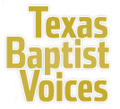Negotiation is a part of life. Sooner or later, we have to buy a car. We have to mediate those dreaded final moments of a job interview where we negotiate salary. And now, with the magic of Craigslist, we can haggle like we are in a Moroccan market from the comfort of our own couches.
 Garrett VickreyWe prepare for negotiations like we are fortifying ourselves for battle. The expectation is we always are going up against a ruthless negotiator. We assume our opponent—whether on Craigslist or in a job interview—is a pitiless negotiator and a potential shark. We expect Donald Trump. But is that often the case?
Garrett VickreyWe prepare for negotiations like we are fortifying ourselves for battle. The expectation is we always are going up against a ruthless negotiator. We assume our opponent—whether on Craigslist or in a job interview—is a pitiless negotiator and a potential shark. We expect Donald Trump. But is that often the case?
Community life
Negotiation is a part of life in community. Congregational decision-making demands a certain amount of give and take. Pastors must find healthy ways of sharing their vision to influence people. Influence carries a negative connotation, implying manipulation. But there are healthy ways to exert influence without burning those ever-so-important relational bridges.
 The problem is when we bring this aggressive style into congregational life, we also bring damage and fallout. Congregational life is far different from Craigslist—most of the time! In churches, we have to continue to cultivate community with each other after the deal is done.
The problem is when we bring this aggressive style into congregational life, we also bring damage and fallout. Congregational life is far different from Craigslist—most of the time! In churches, we have to continue to cultivate community with each other after the deal is done.
Civility is essential in cultivating community. If we go into congregational dialogue like Donald Trump negotiating a building proposal in Manhattan, we will pay for the fallout later.
We cannot afford the residue of resentment that emerges from crushing each other in congregational dialogue. A win-at-all-costs attitude is a losing attitude for the church.
Other options
Are there other ways to use the influence we have been given to shape a vision for congregational life that resembles the beloved community Jesus’ Spirit enlivens today? How can we be more faithful in negotiating the intricacies of congregational life? I am no expert in the art of the congregational deal, but we can learn from experts.
Sign up for our weekly edition and get all our headlines in your inbox on Thursdays
Chris Voss is a former FBI international hostage negotiator who recently wrote Never Split the Difference: Negotiating as if Your Life Depended on It. In an interview, he offers negotiation advice he learned negotiating kidnappings and the Washington, D.C., sniper case.
We can take three secrets from this hostage negotiator to use in congregational life—“No.” Repeat. How.
• Start at “no.”
“No” can propel people forward, as opposed to getting to yes. “No” is comfortable. “No” feels like we are not giving anything up. Congregational budget discussions can become contentious quickly.
Is there a way to lead with “no”? Instead of starting out saying, “Let’s add $10,000 to the children’s ministry budget for next year,” start with a question that invites a reflective “no.” Such as, “Have we given up on growing our children’s ministry?”
• Repeat what people say.
This is tactical empathy in action. Voss suggests the last three words someone says creates space for intimate and honest interaction. They feel they are being heard, and it gets more information out on the table.
Repeating the words of your dialogue partner is not a patronizing ploy but a method of active listening. Time provides an opportunity for a thoughtful response rather than a reactionary retort.
• Finally, how is more important than “yes.”
Agreeing in principle is not as important as agreeing how. How many congregational decision-making processes have been knocked off course because people are upset about the process? Often, that’s just a way of saying we are against the outcome. But there’s something to be said of getting to the how of a deal.
Barometer of health
Negotiation is not always negative. Congregational dialogue is a critical part of Baptist church life. Civility in these dialogues is a barometer of congregational health.
No one denies we are living through a period of intense polemics in our politics. Election season is here, bringing with it politicians and pundits trading jabs. Their rhetoric is subtly shaping our conversational imagination. Have we given up on our ability to shape national discourse?
Our best chance of healing the national discourse is first healing our local conversations. By working on how we negotiate our own congregational dialogue, we can begin to shape a new conversation that is more civil than what we see on CNN.
Garrett Vickrey is senior pastor of Woodland Baptist Church in San Antonio.
















We seek to connect God’s story and God’s people around the world. To learn more about God’s story, click here.
Send comments and feedback to Eric Black, our editor. For comments to be published, please specify “letter to the editor.” Maximum length for publication is 300 words.